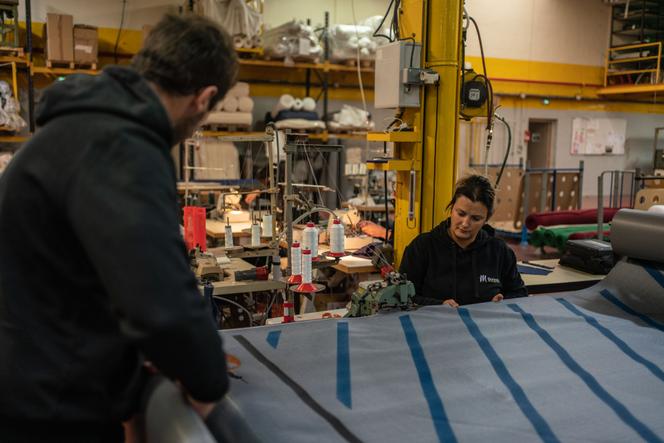


For France Cauchy, manager of the La Bel'France boutique in Cluny (eastern France), which exclusively sells French products, the summer of 2023 failed to live up to its promises. "Footfall, sales and average order value are down by around 20%," said the shopkeeper. "Nothing is selling as well. Even the 5 or 6-euro soaps didn't do as well this year!"
This can be attributed to both the weather and French vacationers choosing to travel abroad rather than stay within France... but that's not the only reason. This pretty Burgundy town is not the only place experiencing disenchantment with "made in France" products. As is the case with organic products, sales of which fell by 13% in the first half of the year, products made in France are also feeling the impact of inflation. Households facing budget restraints are now opting for cheaper products that may be imported.
"The price signal is extremely strong, and that affects all walks of life. Not everyone can afford to buy pants at 120 euros or a T-shirt at 45 euros," said Christèle Merter, president of La Gentle Factory, a French clothing brand (despite its name) that she created in 2013.
"We saw consumer spending fall over several stages," said Merter. "The first jolts were felt in June 2022. Things went from bad to worse, and September [2023] was really bad." The brand then launched a promotion to mark its tenth anniversary. "All our items were discounted by 50% on our website. Within ten hours, we made 10% of our annual turnover," boasted the company director. Proof that consumers aren't turning their back on French goods per se, but rather the prices attached to them.
"Since spring, 'made in France' brands have seen a drop in sales of up to 30%, sometimes more," said Olivier Ducatillon, president of the Union of Textile Industries. "It's a real problem. When the economy becomes the main focus, where products come from is no longer top priority." While textiles and footwear aren't doing too well, French home furnishings aren't faring much better, with sales down by as much as 40%, according to Charles Huet, president of La carte française, a gift card distributed by works councils, allowing people to treat themselves to French products.
Fabienne Delahaye, president of MIF Expo, the "made in France" trade show taking place in Paris from November 9 to 12, assures us however that "there is still an appetite. People are aware of what's at stake. It's a given." However, companies representing some 100,000 jobs in France are suffering. To maintain their presence at the show, "some exhibitors have told me that they are going to be making savings elsewhere, for example by canceling communication campaigns," confided Delahaye.
You have 55% of this article left to read. The rest is for subscribers only.
